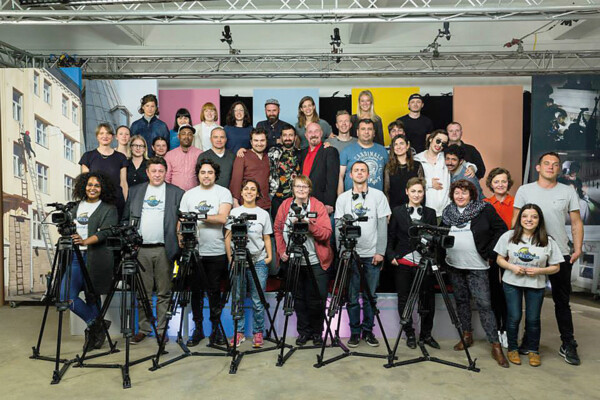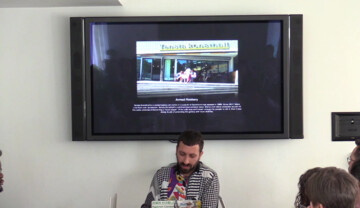The Code of Intervenor
The position of a museum director is one of trust. The director will act with integrity and in accordance with the highest ethical principles. The director will avoid any and all activities that could compromise his/her position or the institution.[1]
Our ability to maintain a strong relationship of trust with our public is critical to our ability to fulfil our mission.[2]
The Code begins from the premise that the Foundation – created to promote the wellbeing of humanity – is a public trust.[3]
The first sentence is taken from the Code of Ethics written by the members of The Association of Art Museum Directors in June 1966. The second is taken from the Tate Ethics Policy approved by the Board of Trustees on 16 March 2016. And the third is from the Code of Conduct of the Rockefeller Foundation, approved on 9 March 2016.
Looking at these three examples we would ask why is “trust” the most important keyword for an institution, when many of them react in an authoritarian way with regard to most of the public’s concerns? If we give the most importance to “trust” how are we going to demand a profound transformation of institutions that is truly motivated by a sincere notion of “trust”?
Who is in the position to do this? In order to safeguard the cultural heritage that institutions contribute to produce, we must start with the question of “who are we?” in order to establish the right kind of trust nexus.
Who are we?
Negri defines I and we as follows: “I myself, I am the common and we are all together a set of singularities.”[4] Moving from Negri’s idea, Raúl Sánchez Cedillo argues that we should not talk about multi-cultural but we should talk about multitude, a profound transformation of subjectivity. But at the same time Cedillo urges the danger of the multitude, when women, fools, and foreigners are excluded from the democratic constituency. According to Monique Wittig, in her text “The Straight Mind”:
we must start with producing a political transformation of the key concepts, that is of the concepts which are strategic to us; changing the concept of white, master, man, and speak of ourselves as women and men… The concept of difference has nothing ontological about it. It is only the way that the masters interpret a historical situation of domination. The function of difference is to mask at every level the conflicts of → interest, including ideological ones. In among all the productions of the straight mind I especially challenge structuralism and the Structural Unconscious.
How do we challenge the authoritarianism of the Structural Unconscious of the straight mind?
Raúl Sánchez Cedillo proposes constitutionalised disobedience, and says what is needed is instituting actors instead of tactical collaborations, with the right to disobey. Gerald Raunig names this “instituent practice”, which positions itself between governing and being governed through its emancipatory and radical project of “transforming the arts of governing”. Its effect goes beyond the particular limitations of a single field, and it has the potential to force structural change in the areas of patronage, law, the urban, and the control of public space. Eqbal Ahmad calls it “out-administering” instead of outfighting, which can eventually build “alternative hierarchies” to satisfy the needs of the people. Emily Roydson, who is positioning herself as interlocutor somewhere between Jean Genet’s aesthetic and Eqbal Ahmad’s political primacy, explains this as a systematic rebuilding of public institutions, and Roydson defines rebellion is not just territorial – it’s ideological, sexual, political and perpetual along the same lines as Monique Wittig.
To challenge the distributions of power, what is needed is not a marginal outside force – or hired inside force. That is when an intervenor can take a critical role. As described in the Merriam-Webster dictionary, in law, an intervenor is the one who intervenes as a non-party in a legal proceeding.

Ahmet Öğüt, Happy Together; Collaborators Collaborating, specially constructed TV set, public event and a film installation, 2015. Commisioned by Chisenhale Gallery. Photo courtesy by Mark Blower.
I would propose the idea of the “intervenor” as an → autonomous outside voice who nonetheless has the right to act within the institutions. Intervenors could not only act within the walls of the institutions, but could also directly intercede when it comes to matters of communication, events, → bureaucracy, administration, and even the workspace itself. Intervenors would have an officially acknowledged agreement that protects their work from financial and political interference. Intervenors would have a right to vet all forms of communication before they go public. This would include announcements, press conferences, events, and statements. Intervenors would act in a time-sensitive manner, and would be flexible in times of crisis; they would not act according to pre-programmed agendas, concepts, exhibition schedules, or locations. Intervenors would be the protagonists who go beyond symbolic and harmless institutionalised critical → agency. They would intercede if the institution reacted in an authoritarian or judgmental way to any public concerns.



